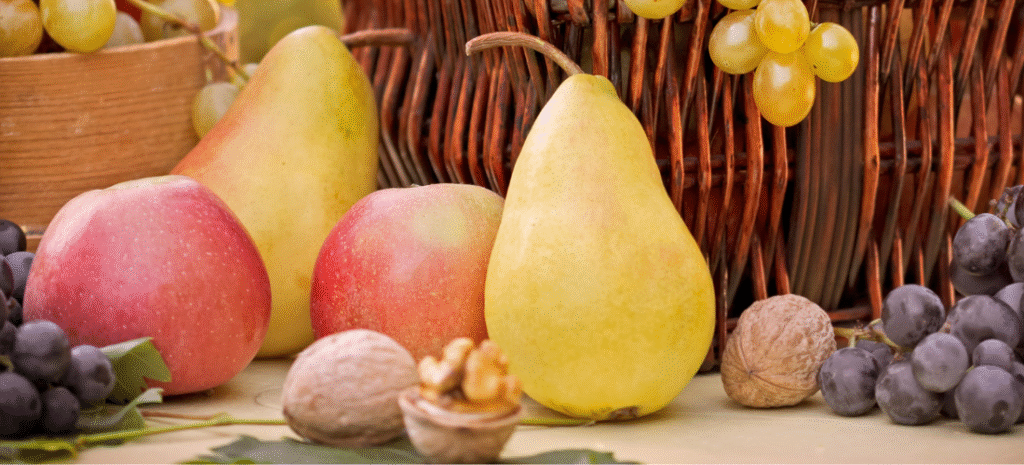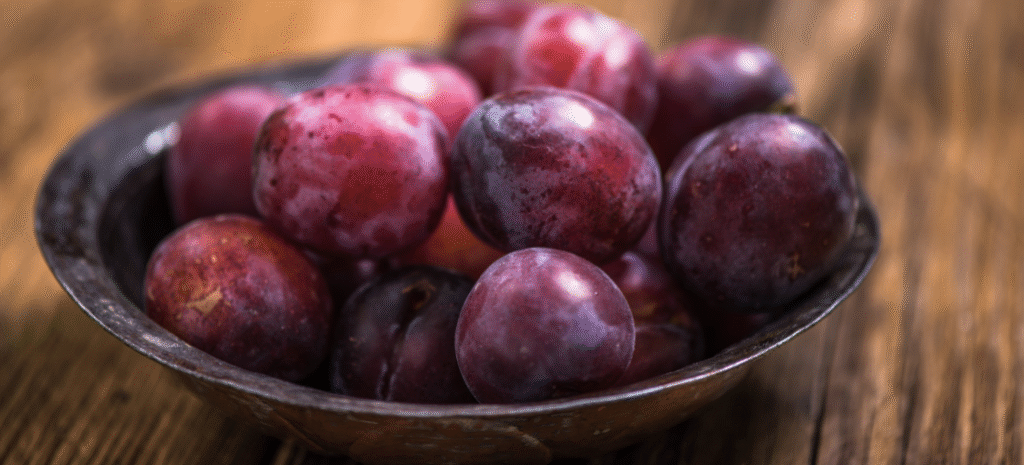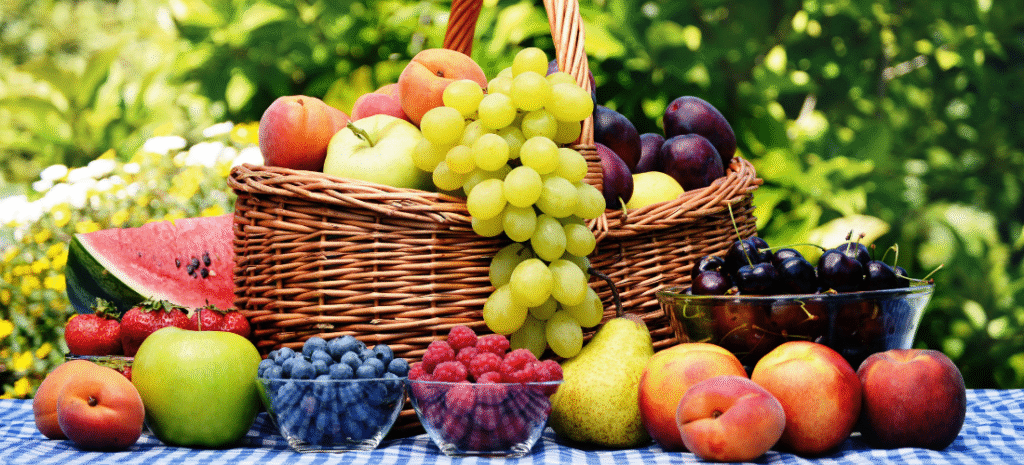With the arrival of autumn, our bodies also enter a transition phase. The days get shorter, the light decreases, and nature slows down its rhythms. During this time, it is important to support the body with targeted nutrition to help us regain energy and strengthen the immune system ahead of the colder months.
Nutrients allied to the change of season
Even in autumn, nature provides us with foods rich in valuable substances:
- Fiber, useful for intestinal well-being
- Vitamins and minerals, essential to support vital functions
- “Good” fats critical for cardiovascular and brain health
Supplementing these nutrients daily helps us prevent seasonal ailments and face the change of seasons with more strength and vitality.
THE STARS OF AUTUMN: NUTS, VEGETABLES AND FRUITS IN SEASON
Persimmons: energy and antioxidants
Among the iconic fruits of autumn are persimmons, which are extremely rich in vitamin A, vitamin C and beta-carotene. These nutrients have strong antioxidant power and help strengthen skin, eyesight and immunity.
Walnuts: little treasures of omega-3s
Walnuts are a real powerhouse of energy and essential fatty acids. A small portion a day contributes to well-being:
- Cardiovascular (thanks to omega-3s)
- Cerebral (thanks to vitamin E)
Autumn vegetables: fennel, broccoli and more
- Fennel, rich in water, fiber and vitamin C, is known for its cleansing and digestive properties
- Broccoli, on the other hand, is a valuable source of folic acid, vitamin K, fiber, and antioxidants, with a good supply of calcium useful for bones.
THE FALL SHOPPING CART: WHAT TO BUY MONTH BY MONTH
October
- Khaki – rich in vitamins C and A, essential for skin, mucous membranes, eyesight and immune system
- Walnuts – rich in omega-3s, support heart and brain
- Pumpkin-a source of fiber and beta-carotene, a vitamin A precursor that is useful for skin and bones.
November
- Broccoli – a single serving covers about ¼ of the vitamin C requirement
- Pears-if eaten with the skin on, they are rich in fiber that promotes satiety and nourishes the gut microbiota
- Leeks – contain vitamin K, phosphorus and magnesium: ideal after physical activity or intense sweating.
December
- Fennel-great both raw and cooked, rich in insoluble fiber useful for the intestines
- Cauliflower – when eaten raw or lightly cooked, covers 100% of daily vitamin C requirements
- Apples-Contain fiber and polyphenols valuable for cardiovascular health; nutrients are concentrated in the skin, which should be retained.
EATING IN COLOR EVEN IN AUTUMN
Even in autumn, the table can be full of flavor and color. Taking advantage of seasonality means bringing fresher, more nutritious and sustainable foods to the table that help our bodies feel good and adapt to climatic and physiological changes.
A varied diet based on seasonal produce is a simple but powerful tool for taking care of your well-being, every day.
by dietitian Alessandra Zanini



